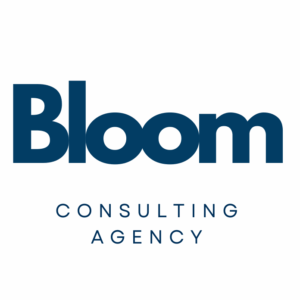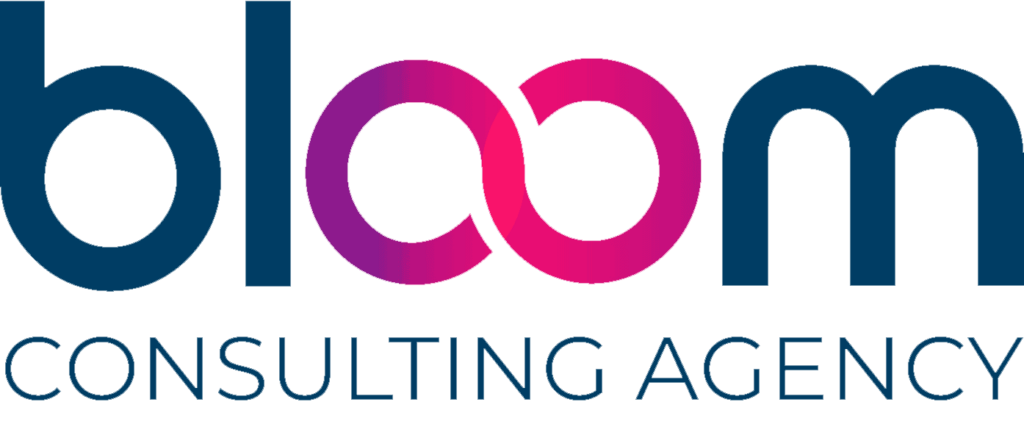Complete Guide to Specialized Healthcare Billing in 2025: Mental Health, Addiction Treatment, MAT & Pharmacy Billing
Table of Contents
The latest trends in medical billing and coding are reshaping healthcare billing in 2025, with dramatic transformations occurring in specialized fields like mental health, substance abuse billing, and medication-assisted therapy. Both in-house revenue cycle management teams and outsourced medical billing companies face unprecedented challenges navigating complex payer requirements, evolving compliance standards, and shifting reimbursement models. Understanding these specialized billing practices directly impacts your organization’s financial health and patient care quality.
Mental Health Billing Trends: Medical Billing and Coding Updates for 2025
Mental health billing complexity has intensified following recent federal policy changes and workforce shortages. Over 112 million Americans reside in areas with a dearth of mental healthcare providers, and by 2025, shortages of counselors, psychiatrists, mental health social workers, clinical & counseling psychologists, and other specialized professionals are expected to get worse, according to experts.
Critical CPT Code Updates for Mental Health Services
Several key coding changes affect mental health billing accuracy in 2025. Individual psychotherapy codes (90834, 90837, 90847) now require enhanced documentation standards. Family therapy sessions demand specific modifier usage to differentiate between patient-present and patient-absent scenarios.
Telehealth billing continues evolving with permanent modifications to place-of-service codes. The 02 modifier remains essential for qualifying telehealth encounters, while audio-only services require careful documentation to meet payer requirements. Emergency mental health crisis codes (99471-99473) provide new revenue opportunities for qualified providers.
Documentation Requirements That Drive Reimbursement
Successful mental health billing hinges on comprehensive documentation practices. Treatment plans must demonstrate medical necessity through measurable goals and evidence-based interventions. Progress notes should include specific symptom tracking, functional improvements, and treatment response metrics.
Insurance prior authorization has become increasingly more complex for mental health services. Developing standardized templates helps approval processes while reducing administrative burden. Consider implementing automated prior authorization systems to streamline workflows and minimize claim delays.
Pro Tip: Maintain separate documentation for different payer types, as Medicare Advantage plans often have distinct requirements compared to traditional Medicare or commercial insurers.
Addiction Treatment Billing: Revenue Optimization Strategies
Substance abuse treatment billing presents unique challenges requiring specialized expertise. The opioid crisis continues driving demand for addiction services, yet billing complexities often create revenue loss for treatment facilities.
Understanding Intensive Outpatient Program (IOP) Billing
IOP services require precise time documentation and appropriate procedure code selection. The H0015 code covers individual counseling sessions, while H0005 addresses group therapy encounters. Partial hospitalization programs utilize different coding structures entirely, making accurate service classification crucial.
Treatment episode billing demands careful attention to bundling restrictions. Some payers mandate consolidated billing for related services, while others permit separate line-item charges. Review each payer’s specific guidelines to maximize reimbursement potential.
Medication-Assisted Treatment (MAT) Billing
To facilitate accurate billing, providers must be well-versed in key CPT codes related to MAT services: G2067: Medication-assisted treatment, methadone (outpatient) G2068: Medication-assisted treatment, buprenorphine (oral) (outpatient).
MAT billing requires understanding both medical and pharmacy benefit structures. Buprenorphine prescriptions may fall under pharmacy benefits, while counseling services bill through medical benefits. This dual-pathway approach creates coordination challenges requiring systematic tracking.
Opioid Treatment Program (OTP) Specific Requirements
Use intake activity code G2076 only to bill for new patients starting OUD treatment at an OTP for medically reasonable and necessary services. OTP billing follows distinct patterns compared to traditional outpatient services.
Weekly bundling requirements affect revenue recognition timing. The G2067 code covers comprehensive weekly services including medication dispensing, counseling, and medical evaluation. Understanding these bundles prevents duplicate billing errors while ensuring complete service capture.
Key Insight: OTP facilities must maintain detailed logs documenting each service component within bundled codes to support audit requirements and maximize reimbursement accuracy.
Pharmacy Billing Integration: Bridging Medical and Prescription Benefits
Pharmacy billing can be especially challenging in certain settings due to the need for careful coordination. For instance, mental health medications often require prior authorization. Additionally, addiction treatment medications may involve extra steps, such as complying with DEA reporting requirements. On top of that, many pharmacies face limitations in marketing their products online because of new regulations requiring LegitScript certification. Compounding and certified pharmacies must obtain this certification to offer their products to clinics and other medical providers, who are also required to be LegitScript certified.
Prior Authorization Strategies for Psychiatric Medications
Psychiatric medication approvals require comprehensive clinical documentation. Submit treatment history, previous medication trials, and current symptom severity assessments with initial requests. Electronic prior authorization systems reduce processing time from weeks to days when properly implemented.
Step therapy protocols frequently impact antipsychotic and antidepressant prescriptions. Maintain detailed records of medication trial outcomes to expedite appeals when first-line treatments prove ineffective. Consider developing partnerships with specialty pharmacies familiar with behavioral health medications.
Controlled Substance Billing Compliance
MAT medications require enhanced security protocols affecting billing processes. Methadone dispensing creates daily billing entries, while buprenorphine prescriptions follow traditional pharmacy models. Naloxone distribution often qualifies for separate reimbursement through public health programs.
PDMP integration ensures compliance while supporting clinical decision-making. Automated systems can flag potential issues before prescriptions reach pharmacies, reducing claim denials and improving patient safety outcomes.
Trends in Medical Billing and Coding Technology Solutions
Revenue cycle technology adoption accelerates across specialized healthcare settings. AI-powered coding assistance reduces human error while improving documentation quality. Real-time eligibility verification prevents coverage issues affecting patient care decisions.
Electronic Health Record (EHR) Optimization
EHR workflows must support medical billing requirements without creating provider burden. Template customization enables efficient documentation while ensuring compliance with payer-specific requirements. Integration between clinical and billing systems reduces manual data entry errors.
Automated charge capture identifies missed billable services, particularly important in mental health settings where multiple brief encounters may occur during single visits. Consider implementing mobile charge capture solutions for providers working across multiple locations.
Predictive Analytics for Revenue Cycle Management
Machine learning, also known as AI, can help spot patterns in claim denials, making it possible to correct issues before claims are submitted. Because of this, AI and predictive models are expected to play a major role in the future of revenue cycle management (RCM). For example, AI can identify patients who may be at risk of losing insurance coverage, allowing providers to step in early and help prevent treatment disruptions. Additionally, other benchmarking tools compare performance against industry standards, identifying improvement opportunities specific to behavioral health billing.
Key Trends in Medical Billing and Coding Compliance
Regulatory compliance remains paramount across specialized healthcare billing. Recent federal funding changes create uncertainty requiring adaptive strategies. The Trump administration says it hopes to save $11.4 billion by freezing and revoking COVID-era grants. Addiction experts say clawing back the federal funding is risky and could put patients at risk.
HIPAA Considerations in Specialized Settings
Mental health and addiction treatment records require enhanced privacy protections. Psychotherapy notes maintain separate protection standards beyond standard medical records. Ensure billing staff understand these distinctions to prevent disclosure during payment processing.
State laws often impose additional restrictions on behavioral health information sharing. Review local requirements regularly as legislation frequently changes affecting billing practices and information exchange protocols.
Audit Preparation and Response
Healthcare billing is under growing scrutiny from both insurance payers and regulatory agencies. To stay compliant, it’s important to keep thorough documentation for all billed services—especially for high-value codes often used in behavioral health. Additionally, Recovery Audit Contractors (RACs) continue to focus on behavioral health services. To prepare, organizations should develop standard procedures for responding to audits, including quick access to records and expert clinical review. Taking a proactive approach to audit readiness can reduce stress and increase the chances of a successful outcome.
Payer Relations: Building Strategic Partnerships
Strong payer relationships significantly impact reimbursement success in various healthcare settings. Thus, regular communication prevents misunderstandings while identifying new coverage opportunities.
Negotiating Behavioral Health Contracts
During contract negotiations, it’s important to address the unique needs of behavioral health services. Be sure to include clear guidelines for billing crisis intervention, reimbursing group therapy sessions, and covering family counseling. Additionally, make sure the contract outlines provisions for telehealth services and crisis support.
Furthermore, consider exploring value-based contract opportunities that tie reimbursement to patient outcomes. Behavioral health and addiction treatment are well-suited for outcome-based models—especially when contracts are structured around realistic, measurable goals.
Managing Prior Authorization Relationships
Develop collaborative relationships with payer medical directors overseeing behavioral health benefits. Regular meetings can address billing issues while identifying opportunities for streamlined approval processes.
Create standardized submission packets including all typically requested information. This proactive approach reduces back-and-forth communication while demonstrating professionalism to payer reviewers.
Measuring Success: Financial Trends in Medical Billing and Coding Performance
Key performance indicators (KPIs) help track billing effectiveness across specialized healthcare settings. Days in accounts receivable, clean claim rates, and denial percentages require constant monitoring.
Specialized Healthcare Billing Benchmarks
Clean claim rates should exceed 95% for mental health services and 90% for addiction treatment billing. Lower rates indicate process improvement opportunities within documentation or coding practices.
Collection rates vary significantly by payer type and service category. Government programs typically show slower payment cycles but higher ultimate collection rates compared to commercial payers with faster payment but more aggressive denial practices.
Revenue Cycle Optimization Strategies
Implement charge capture audits identifying missed billing opportunities. Mental health providers often under-bill for case management services, family meetings, and care coordination activities that qualify for separate reimbursement.
Consider outsourcing medical billing aspects like prior authorization processing or appeals management. These services require specific expertise that may not justify internal staffing for smaller practices.
Staff Training and Development
Medical billing training requires ongoing education ensuring staff stay current with evolving requirements. As a result, create training programs addressing unique aspects of mental health, addiction, and pharmacy billing such as changes to ICD codes.
Certification and Continuing Education
Encouraging staff to earn certifications in behavioral health billing can strengthen your team’s expertise and boost employee satisfaction and retention. These credentials show a strong understanding of the field and can lead to better billing outcomes. It’s also important to provide regular training updates that cover coding changes, insurance policy updates, and new regulations that impact behavioral health billing. Holding monthly team meetings can help reinforce key concepts and give staff a chance to discuss and resolve specific billing challenges.
Cross-Training Benefits
Cross-training billing staff across multiple specialties increases team flexibility and supports employee growth. It also helps staff understand how medical and pharmacy benefits work together, which strengthens problem-solving skills. Also, to avoid burnout and keep staff engaged, consider rotating responsibilities regularly. This strategy not only ensures better coverage during staff absences but also builds a more skilled team, making it easier to promote from within.
Technology Integration: Future-Proofing Your Operations
Emerging technologies promise to revolutionize medical healthcare billing. Artificial intelligence, blockchain, and advanced analytics offer opportunities for improved efficiency and accuracy.
AI-Powered Coding and Documentation
Machine learning algorithms increasingly support coding accuracy while reducing manual review requirements. These systems learn from historical data to identify patterns and suggest optimal code selection.
Natural language processing (NLP) extracts billable services from provider notes automatically. This technology particularly benefits mental health settings where extensive narrative documentation often contains multiple billable elements.
Blockchain for Claims Processing
Blockchain technology offers secure, transparent claims processing reducing fraud while improving payment speed. Early adopters report significant reductions in claim disputes and appeals.
Smart contracts could automate routine billing processes while ensuring compliance with complex payer requirements. This technology may eventually eliminate many manual steps currently required for specialized healthcare billing.
Frequently Asked Questions (FAQ)
Q1: What are the most common billing errors in mental health services?
Mental health billing errors typically involve incorrect modifier usage, lack of documentation supporting medical necessity, and improper time-based code selection. The most frequent mistake is billing individual therapy codes without meeting minimum time requirements. Also, it is important to note that providers must document actual face-to-face time, not scheduled appointment duration, to support proper code selection.
Q2: How do I handle billing when patients have both Medicare and Medicaid coverage?
Dual-eligible patients require careful coordination between Medicare primary and Medicaid secondary coverage. Bill Medicare first using standard procedures, then submit to Medicaid with Medicare’s explanation of benefits. Some services covered by Medicaid but not Medicare should bill Medicaid directly. Always verify current coverage status before service delivery.
Q3: What documentation is required for MAT billing to ensure reimbursement?
MAT billing requires comprehensive documentation including initial assessment, ongoing medical evaluations, counseling notes, and medication monitoring records. Document medical necessity through diagnostic criteria, treatment goals, and progress measurements. Include drug screening results, adverse event monitoring, and patient compliance tracking to support continued treatment authorization.
Q4: Can telehealth services be billed the same as in-person visits for addiction treatment?
Telehealth billing for addiction treatment follows specific guidelines varying by payer and service type. Individual counseling sessions typically receive equivalent reimbursement to in-person visits when using appropriate modifiers. Group therapy and intensive outpatient programs may have restrictions. Always verify current telehealth policies as regulations continue to change.
Q5: How do I appeal denied claims for behavioral health services?
Behavioral health appeals require clinical documentation supporting medical necessity and appropriate level of care. Include treatment guidelines, patient assessment scores, and evidence-based treatment protocols. Submit peer-reviewed literature supporting your treatment approach when applicable. Consider requesting peer-to-peer reviews with the payer’s medical director for complex cases.
Q6: What are the key differences between billing for substance abuse treatment and mental health services?
Substance abuse treatment often involves specialized codes, stricter documentation requirements, and different prior authorization processes. Addiction treatment frequently includes medication components requiring pharmacy benefit coordination. Mental health services typically focus on psychotherapy codes with less complex medication management. Both require careful attention to privacy regulations and ethical billing practices.
Q7: How do I determine whether to bill medical benefits or pharmacy benefits for MAT medications?
MAT medication billing depends on the specific drug and administration method. Injectable medications like Vivitrol typically bill through medical benefits using J-codes. Oral medications like buprenorphine usually process through pharmacy benefits. However, physician-administered doses during office visits may bill medical benefits. Review each payer’s specific coverage policies for accurate benefit determination.
Q8: What should I do if a payer suddenly changes their prior authorization requirements?
Payer policy changes require immediate adjustments to prevent claim delays. Contact the payer directly for clarification on new requirements and effective dates. Also, update your prior authorization templates and staff training materials. You may also want to consider increasing authorization lead times while staff adapts to new processes. Document all communications for future reference.
Q9: How can I improve my practice’s behavioral health billing clean claim rate?
Improving clean claim rates requires systematic approach addressing common error sources. Implement real-time eligibility verification, standardize documentation templates, and conduct regular coding audits. Train staff on payer-specific requirements and create quality checkpoints before claim submission. Use technology solutions for automated charge capture and coding assistance when available.
Thriving in the 2025 Healthcare Billing Environment
Medical billing success requires comprehensive understanding of changing regulations, payer requirements, and technology solutions. Mental health, addiction treatment, and pharmacy billing each present unique challenges requiring specific expertise and attention to detail.
Organizations investing in staff training, technology integration, and systematic process improvement position themselves for sustained success despite increasing complexity. The key lies in viewing billing not as an administrative burden but as a critical component of patient care ensuring sustainable access to vital behavioral health services.
Revenue cycle excellence supports your clinical mission by ensuring financial stability while maintaining compliance with regulatory requirements. By implementing the strategies outlined in this guide, your organization can optimize reimbursement while focusing on what matters most: delivering exceptional patient care in specialized healthcare settings.
Contact us today, and empower yourself with the knowledge needed to excel in medical billing and coding.









